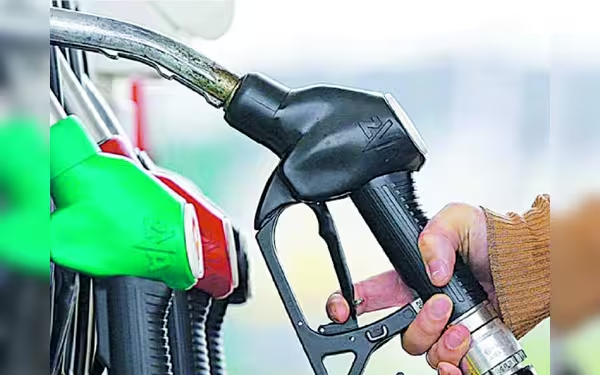Saturday, November 16, 2024 05:49 PM
Diesel Price Hike Looms in Pakistan
- Diesel rates may increase by Rs10.25 per litre.
- PSO preparing working paper for OGRA review.
- Rising fuel costs could impact essential commodities.
 Image Credits: tribune.com.pk
Image Credits: tribune.com.pkPakistan faces a potential diesel price increase of Rs10.25 per litre, raising concerns over economic impact and inflation.
In recent developments, the price of diesel in Pakistan is poised for a significant increase, with reports indicating a potential rise of Rs10.25 per litre. This news comes as the country grapples with fluctuating fuel prices, which have a direct impact on the economy and the daily lives of citizens.
The Pakistan State Oil (PSO) is currently in the process of preparing a working paper that will be submitted to the Oil and Gas Regulatory Authority (OGRA) on October 15. This document will outline the proposed adjustments to diesel prices, which OGRA will review before forwarding it to the government for final approval. The anticipation surrounding this decision has sparked concerns among consumers and businesses alike, as rising fuel costs can lead to increased prices for goods and services.
Fuel prices in Pakistan have been a contentious issue, often leading to public outcry and protests. The potential increase in diesel rates is particularly alarming for those who rely on this fuel for transportation and agriculture. As diesel is a key component in the supply chain, any hike in its price could result in a ripple effect, causing the cost of essential commodities to soar.
It is important to note that the government’s decision on this matter will not only affect the economy but also the daily lives of ordinary citizens. Many families are already struggling with rising inflation, and an increase in diesel prices could exacerbate their financial burdens. Therefore, it is crucial for the authorities to consider the broader implications of such a decision.
As the date for the submission of the working paper approaches, all eyes will be on OGRA and the government to see how they will respond to the proposed diesel price hike. The outcome of this situation will undoubtedly have lasting effects on the economy and the lives of the people in Pakistan. It is essential for the government to strike a balance between maintaining fuel prices and ensuring economic stability for its citizens.













